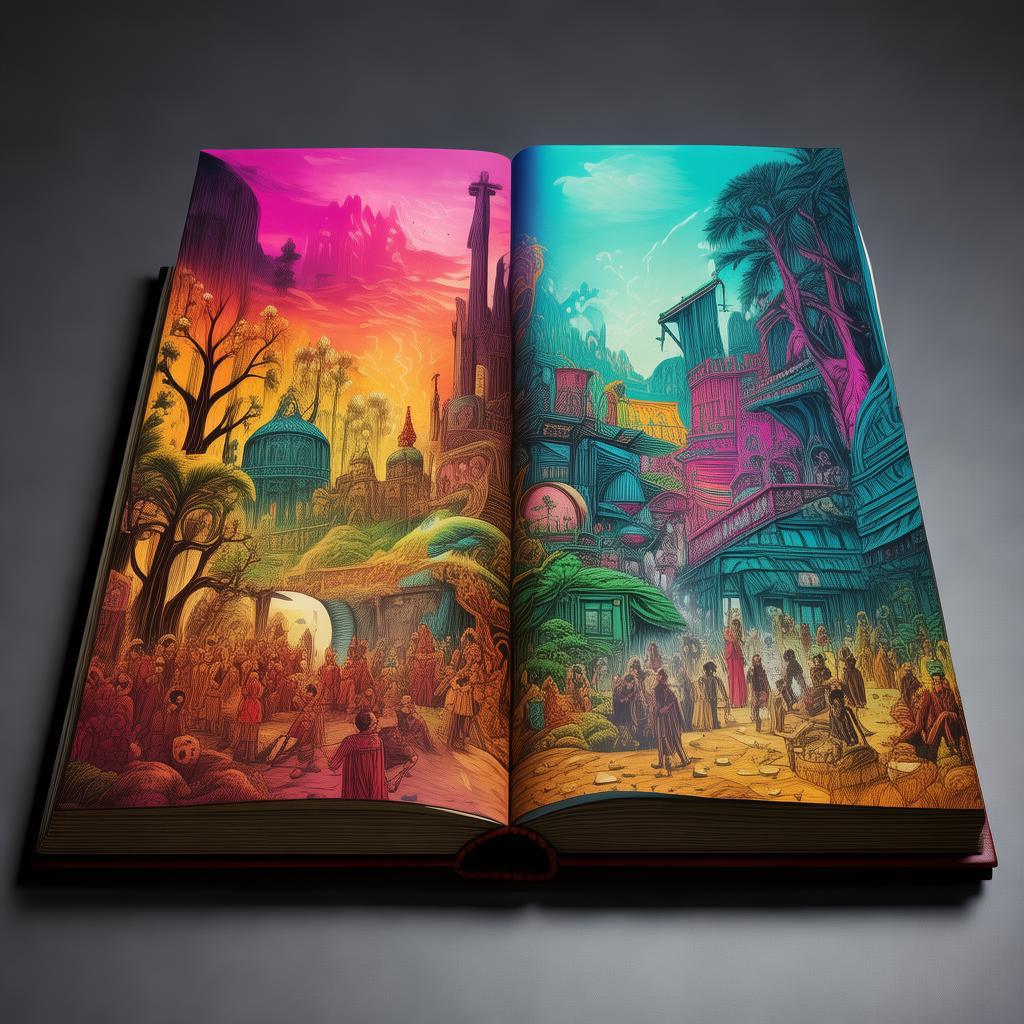Whispers of the Factory: A Director's Dilemma
In the heart of a sprawling industrial complex, nestled between towering smokestacks and the relentless hum of machinery, stood The Factory. It was a place where the hands of workers shaped the future, and the director, Mr. Chen, was a man who had built the factory from the ground up. He was a man of numbers and efficiency, a man who believed that the factory was more than just a place of work—it was a testament to his vision and his will.
One day, as Mr. Chen wandered through the factory, a peculiar sound caught his ear. It was a soft, rhythmic beat, like the tapping of fingers on a keyboard, but there was something else to it—a sense of poetry, of something deeply personal. He followed the sound to a small, secluded room at the end of the hall, where he found a worker, young and unassuming, hunched over a laptop, his fingers dancing across the keys.
The worker looked up, startled, but when he saw Mr. Chen, his eyes flickered with something that wasn't fear. "I'm sorry, sir," he said, his voice a mixture of surprise and defiance. "I didn't mean to—"
"Who are you?" Mr. Chen demanded, his voice low and controlled. "And what are you doing here?"
The worker hesitated, then nodded towards the laptop. "My name is Xiao, and I'm writing poetry. I didn't mean to disturb you, but sometimes, I need to express myself."
Mr. Chen leaned closer, his eyes narrowing. "Poetry? In this factory?"
Xiao nodded. "Yes, sir. I work here, but I also have a life outside of work. I write to escape, to find a place where I can be myself."
The director's curiosity was piqued. He had never met anyone like Xiao before, someone who sought solace in the written word amidst the clatter of metal and the roar of engines. "What kind of poetry do you write?" he asked.
Xiao smiled, a hint of pride in his eyes. "I write about the factory, about the workers, about the machines. I write about the life that happens here, the stories that no one else sees."
Mr. Chen was intrigued. He had always thought of the factory as a place of monotony and repetition, but Xiao's words suggested that there was more to it than that. "I want to read it," he said. "Show me what you've written."
Xiao hesitated, then opened a document on his laptop. The words on the screen were simple, yet they carried a weight that Mr. Chen had never felt before. They spoke of the factory's soul, of the dreams and the fears of the workers, of the director's own unspoken desires.
As he read, Mr. Chen felt a strange connection to Xiao's words. He saw himself in them, the man who had built the factory, the man who had never allowed himself to dream. He realized that Xiao's poetry was not just about the factory—it was about him.
But as Mr. Chen delved deeper into Xiao's work, he discovered that there was more to the young worker than he had ever imagined. Xiao's poetry was intertwined with a series of mysterious events that had been occurring at the factory. Workers were going missing, and whispers of a hidden agenda were spreading like wildfire.
Determined to uncover the truth, Mr. Chen decided to take a closer look at Xiao's life outside of work. He discovered that Xiao was not just a poet; he was also a detective, a man who had taken it upon himself to investigate the factory's secrets. And it was in this role that Xiao had become a target.
As Mr. Chen's investigation unfolded, he found himself caught in a web of lies and deceit. The factory was not the simple place of work he had always believed it to be. It was a place of power struggles, of hidden agendas, and of a director who was forced to question everything he thought he knew.
The factory's director found himself at a crossroads. He could continue to ignore the whispers and the secrets, or he could embrace the truth and face the consequences. He chose the latter, and in doing so, he discovered that the factory was not just a place of work—it was a place of dreams, of hope, and of the human spirit.

In the end, Mr. Chen learned that the true power of the factory lay not in the machines or the products it produced, but in the people who worked there. He realized that Xiao's poetry was not just a reflection of the factory—it was a reflection of the director himself.
As the factory's director stood in the heart of his creation, he felt a sense of fulfillment he had never known before. He had uncovered the truth, he had faced the consequences, and he had emerged stronger. The factory was no longer just a place of work—it was a place of life, of love, and of the enduring human spirit.
And so, the director of The Factory found himself not just as a man of numbers and efficiency, but as a man of dreams and poetry, a man who had learned that sometimes, the most powerful words are the ones that we dare to speak.
✨ Original Statement ✨
All articles published on this website (including but not limited to text, images, videos, and other content) are original or authorized for reposting and are protected by relevant laws. Without the explicit written permission of this website, no individual or organization may copy, modify, repost, or use the content for commercial purposes.
If you need to quote or cooperate, please contact this site for authorization. We reserve the right to pursue legal responsibility for any unauthorized use.
Hereby declared.









